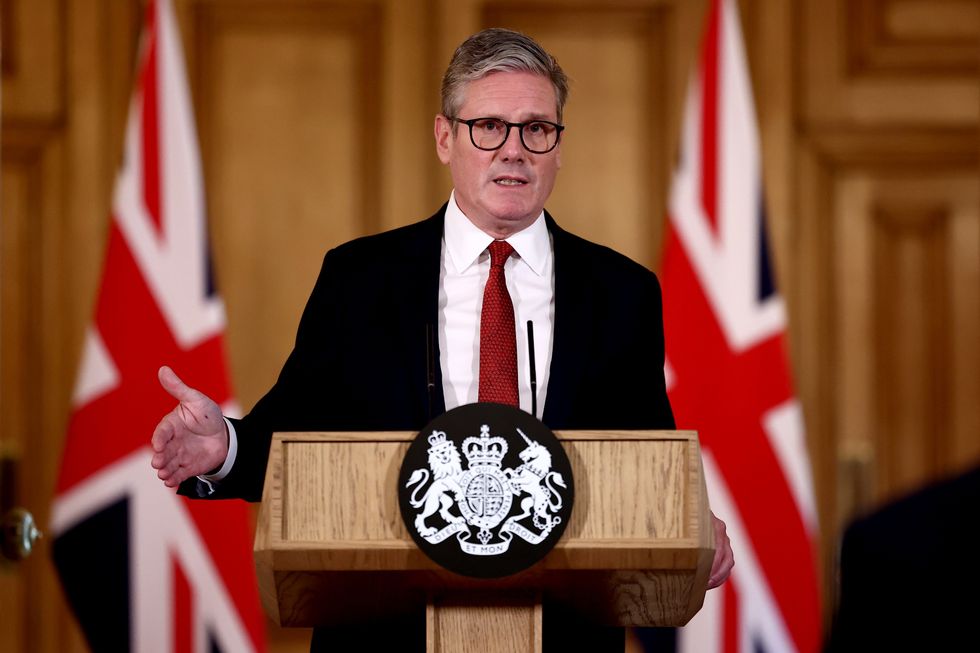There has been a rise in protests since the stabbing of three young girls in Southport
PA/ Getty
Keir Starmer held a summit on Thursday with police chiefs to put a national plan together to deal with a rise in protests
Don't Miss
Most Read
Trending on GB News
Barely a month in office, the Prime Minister had a real opportunity on Thursday to signal to many communities right across the country that he gets it, that he's sensitive to their concerns about what they perceive as societal decay.
Instead, he used his Downing Street news conference to double-down on the narrative that those involved in the protests of recent days, which ended in violence and disorder, were all far right.
While any violence has got to be rightly condemned, surely there also has to be some acknowledgement of the growing community tensions, the disaffection that is fast reaching boiling point.
As I sat in the front row at the Downing Street news conference, it was more in hope than expectation that I'd be picked to ask a question.

Keir Starmer did not take any questions from GB News during his Downing Street news conference
PAWe have to submit our request to ask a question in advance and have no control over who makes it to the list of broadcast and newspaper reporters the Prime Minister decides to call.
Sure enough, Sir Keir called out the names of correspondents from the BBC, ITV, Channel 4 and Sky, then a handful of newspaper reporters, but not GB News.
Not one single question from any of those chosen correspondents addressed the wider public concerns.
We got questions about the far right, about how to protect Muslim communities, whether the police have the resources to deal with the threat, and a couple of questions asking whether the PM condemns comments by Nigel Farage.
If I had been chosen, this would have been my question: "Prime Minister, do you think there might be a danger in simply branding all those who took part in the protests that turned violent as far right?
"Do you acknowledge there is simmering discontent and anger within many towns and cities at what they see as the disintegration of the social fabric of those communities?
"And what do you say to those people, to help address those concerns?"
It's clear the Prime Minister wanted to use his news conference to hammer home the message that the Government is acting.
That criminality will not be tolerated, and concerted action will be taken to ensure anyone responsible for orchestrating violence would feel the full force of the law.
But without a plan to address the underlying issues that help fuel those tensions, these communities will always be fertile ground for those elements wishing to exploit that anger.
LATEST FROM MEMBERSHIP:
This is not just an issue for the UK. We've seen similar unrest across the Irish Sea, where community concerns over mass migration have spilt over into protest and at times, disorder.
Across the European Union, similar tensions have governments there scrambling to find solutions to better secure the EU's borders.
It's all too easy to dismiss the frustration and anger in UK communities as intolerance and extremism, far more difficult to properly grapple with the underlying concerns which have been building for years, well before the horrific events in Southport.







